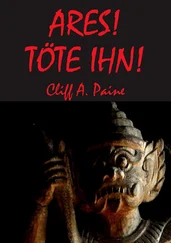“Raise two,” Cyrene said.
“ Parvue ,” Grandmother Taal snapped. Twenty-six, or forty-four. “Twist.” Her third ten, in Blades. “ Vue .”
“What have you got?”
“Full house, tens and twos.” She spread them slowly.
“Ah,” said Cyrene the gambler. He turned up his hand. “Four eights.”
Nine years fell on Grandmother Taal. She gave a small cry as bones sagged, tendons tautened, muscles withered, senses coarsened, aches and complaints flocked in. Looking at Cyrene—with difficulty, a cataract now clouded her right eye—he was as she had first seen him; more so, she thought, with an added gleam in his one eye and a new wave in his sleek hair. He held up the deck.
The gambler’s dilemma. To take the loss, or play for it back. Easy to walk away with a whistle and a resolution when it is only money. Years of your life—years you can afford less than dollars—that is another thing. The problem with playing to get it back is that that is not enough. You play for more. You play for it all. Especially when the stakes are higher than you can afford, and no other game will offer them. I am trapped , Grandmother Taal thought, reaching to cut the cards. Trapped and fooled. Forty-four years, two of them by your own foolishness, and still you have not learned the smell of hustler.
The cards spun across the table and from that game on, Grandmother Taal could not win another hand. Cyrene bet small and sly, a year here, a half-year there, forcing her to fold on potentially strong cards because with every hand, she became less and less able to afford an ante war. And when she did call vue he always had the perfect play, as if that smile that deepened around the corners of his mouth did so because it knew how the cards would turn. There was a further handicap, with every year added to her, she became less and less able to play. She squinted at the patterns as Wasps melted into Blades, Bosses into Duennas, red into black. The rules kept slipping from her grasp, a full house beat what, and was beaten by what? Her fingers trembled as she tried to grip the flighty, silky treacherous things. Walnut knuckles ached. Yet play she must, ask for her draw in a voice she no longer recognised, turn over the cards one by one, lose another year in the hope of winning one back.
She had now lost all sense of how old she was. Flickering motes flocked at the edges of her field of vision. The observation car became filled with a cloying smell like rotting maté and unwashed bodies. Grandmother Taal knew they were the smells and shapes of death. This was how this smiling youth, firm cheeked and full-lipped, intended it to end. This, she suspected, was how he made his way across the world, swallowing lives, a year-vampire feeding on the elderly who, because they could not afford his stakes, craved them all the more.
“No,” she mumbled, mouth filled with the yellow stumps of rotted teeth. “This is not how it ends.”
“I’m sorry, did you say something?” Cyrene shuffled the deck with his quick and nimble gloved fingers. He dealt another round. “I say, shall we play for the big one? Enough of this prettying around. A decade rich enough for you? No? How about two?”
As the gambler dealt the cards, Grandmother Taal’s attention became fixed more and more closely on Cyrene’s eye-patch. Her sense for brown itchily insisted it concealed more than empty socket. If he could see the turn of the cards before they fell, this, her magic said, was where his power was centred. But a crumbling old woman could not hope to wrestle with a man in a stolen prime. But there were other ways. Ways perilous to a crumbling old woman, but worse not to attempt. She wedged her cards into the claw of her hand. Three Hieros.
“Two,” she said. Cyrene smiled, and so did not observe Grandmother Taal slip the pin out of her hair. “Twist.”
Spice of Wasps. Cyrene twisted a Boss of Blades.
“Hm. The Strife Card,” he said, and so did not see Grandmother Taal begin to scratch the word eye into the back of her hand with the hairpin.
“Twist,” she gritted. Curse of the Panarch on her hand, stop shaking! Stop shaking. The Hieros of Hands slid across the Formica. Four of a kind. Keep going. Keep going.
“And for myself,” Cyrene said.
“Stop!” Grandmother Taal commanded. She held up her maimed hand. A bloody eye confronted the blind brown leather patch. Powers boiled between them. Grandmother Taal’s hand shook. She could not hold it up any longer, it was heavy as pig iron, painful as rheumatism, her power was ended. Leather creaked. The eye-patch bulged. Cyrene’s hands flew to keep it down but the strap snapped. The patch catapulted across the carriage. Cyrene let out a wail. Crouched in his eyesocket was a tiny metal homunculus, some machine-demon thing. It turned chromium mandibles on Grandmother Taal and made to leap to safety. Too slow. There was spirit yet in the ancient woman. Quick as thought, she rammed the silver maté straw into Cyrene’s possessed eye-socket, straight through the belly of the demon-thing. Impaled, it crashed to the table, wailing like band-sawn tin. It staggered between the cards, clutching ineffectually at the impaling spear. It tripped over the stainless steel table trim and fell to the floor. Grandmother Taal’s high-heeled boot lifted once and came down with a metallic crunch. She turned to face Cyrene, fumbling at his blind eye.
“You have blinded me!” he screeched. “You terrible old woman!”
“And you have cheated me,” Grandmother Taal said. She laid down her hand. “Four Hieros. Now, shall we see what you have?” She twisted the top card. A second Boss. Looking Cyrene in his single eye, she said, “ Vue .”
She flicked over the face-down cards. They were blank. As she stared at them, Grandmother Taal saw the patterns of other cards flicker over them before settling into the six-eyed Boss of Wasps and the top-hatted Boss of Cash.
“You are a despicable creature,” Grandmother Taal said, feeling all her gambled years rush back into her. Infirmities slid from her like cast-off clothes. She felt herself growing, back beyond what she had been, five, ten, fifteen. She was Amma no longer, she was a vigorous, spry woman of twenty-seven. “And no gentleman!” Cyrene slumped back in his seat as the stolen years fell on him like a landslide. He withered. He aged. His body sagged, wrinkles grew up him like strangling vines. His hair greyed and vanished, his mustachios drooped impotently. The hand clutching the silver-tipped cane shrivelled into a claw. He dwindled inside his crushed velvet clothes.
He reached for his deck, his strength, his hope. Grandmother Taal scooped them out from under his grasp.
“No more!” she said. She stood up, opened the window and threw the cards out. They fluttered and spun in the slipstream; amshastrias and blankness.
“No!” Cyrene Ree cried and the cry became a thin, wheedling wail as, before Grandmother Taal’s eyes, all the years that the gambler had stolen over his centuries of existence were returned. In a breath he crumbled, man to eyeless mummy to ragged skeleton to a pile of soil and humus. An empty suit of tailored clothes hung on the leatherette club chair. Brown dirt spilled from the sleeves, frilled collar and boot-tops. Grandmother Taal grimaced in distaste, rang the attendant bell to summon the impolite Stuard boy to tidy up the mess, moved to an empty seat and hunted a compact out of her bottomless bag to greet a face she had not seen in decades.
16

On the third day, between delirium and dehydration, Sweetness hit the steel rail. She tripped over a crumbled concrete sleeper and fell on it. It burned her right cheek. She reeled back and left a strip of skin fused to the metal. That was how she knew it was real. It was the first experience she had been certain of in two days.
Читать дальше













